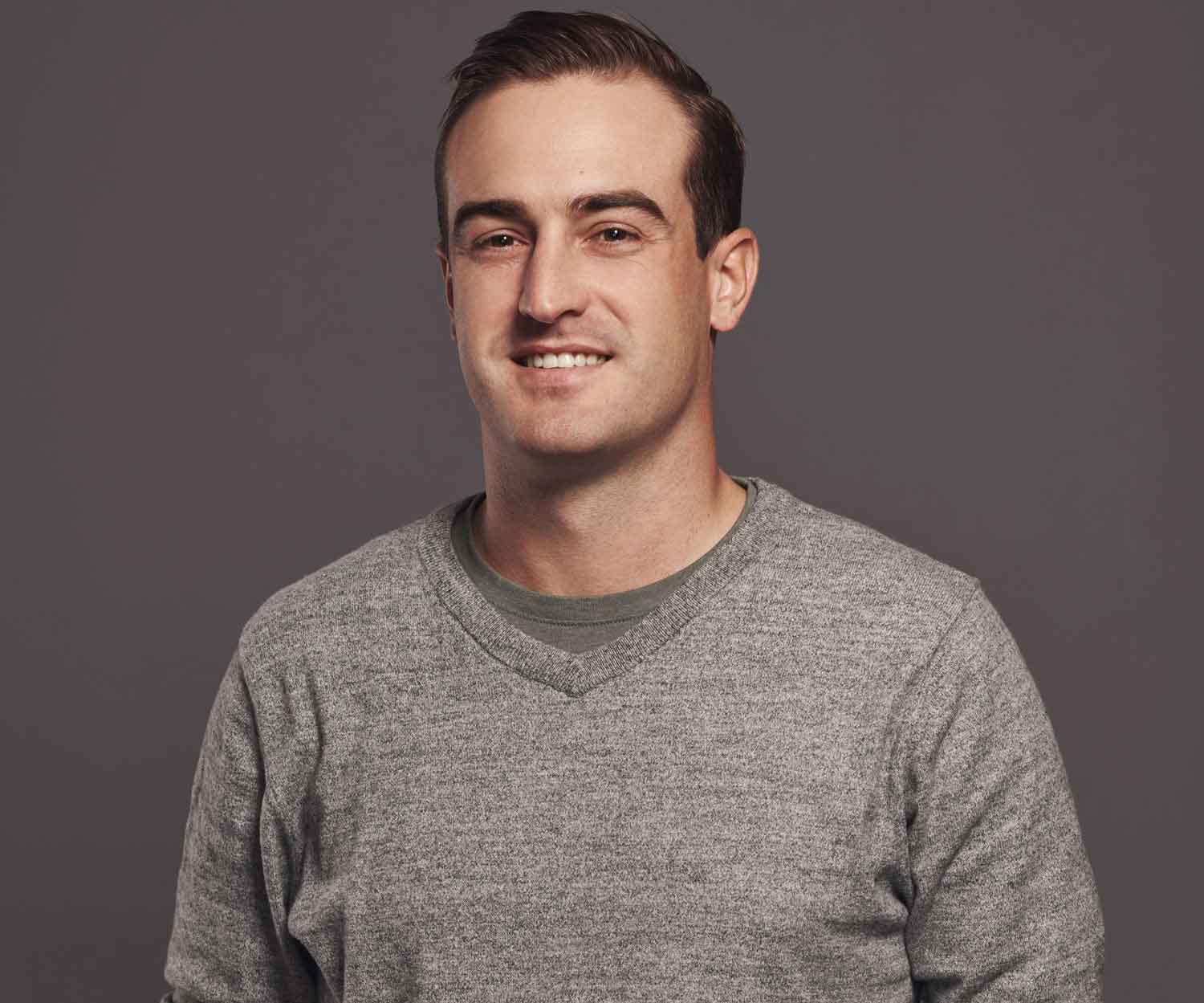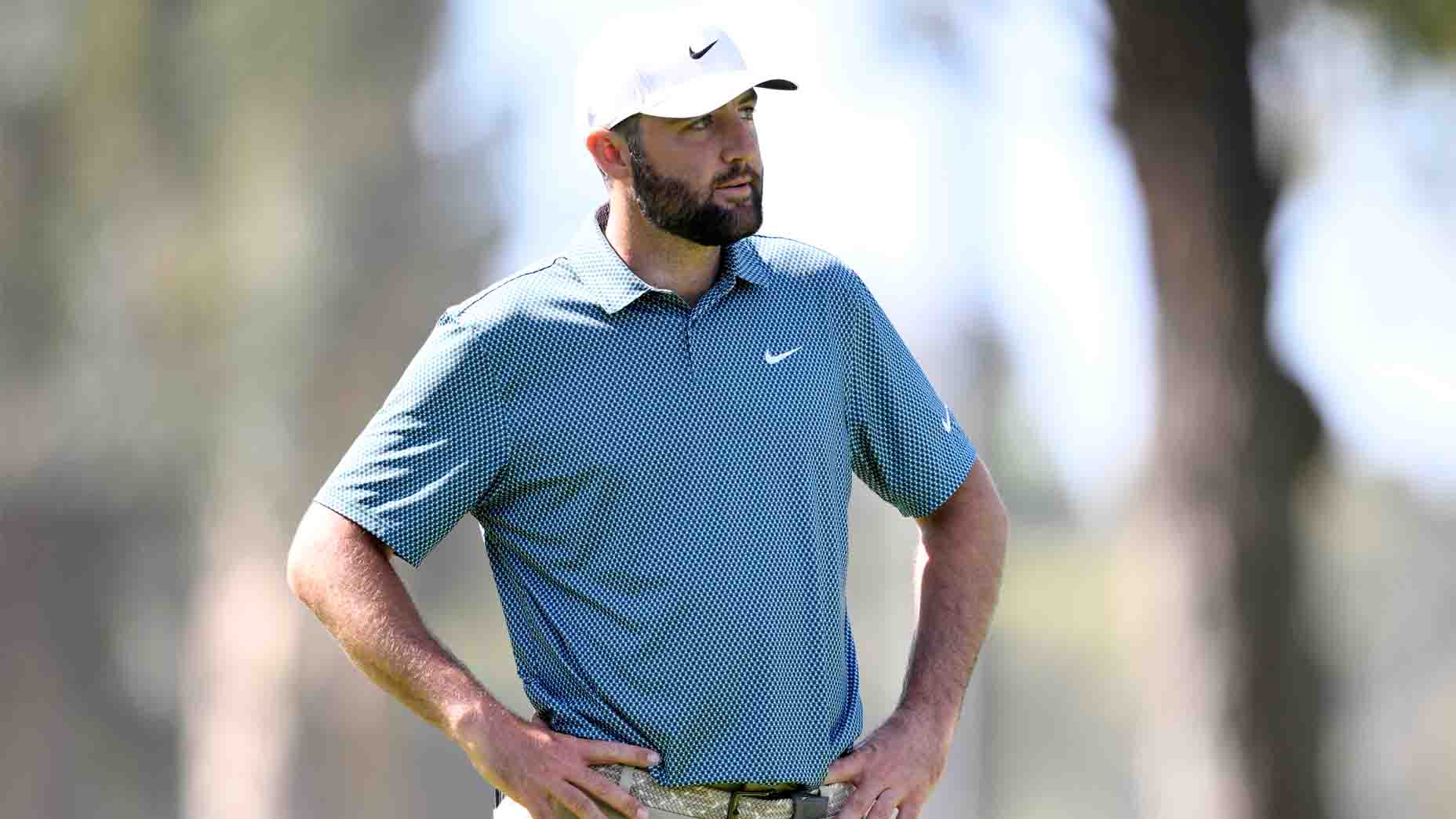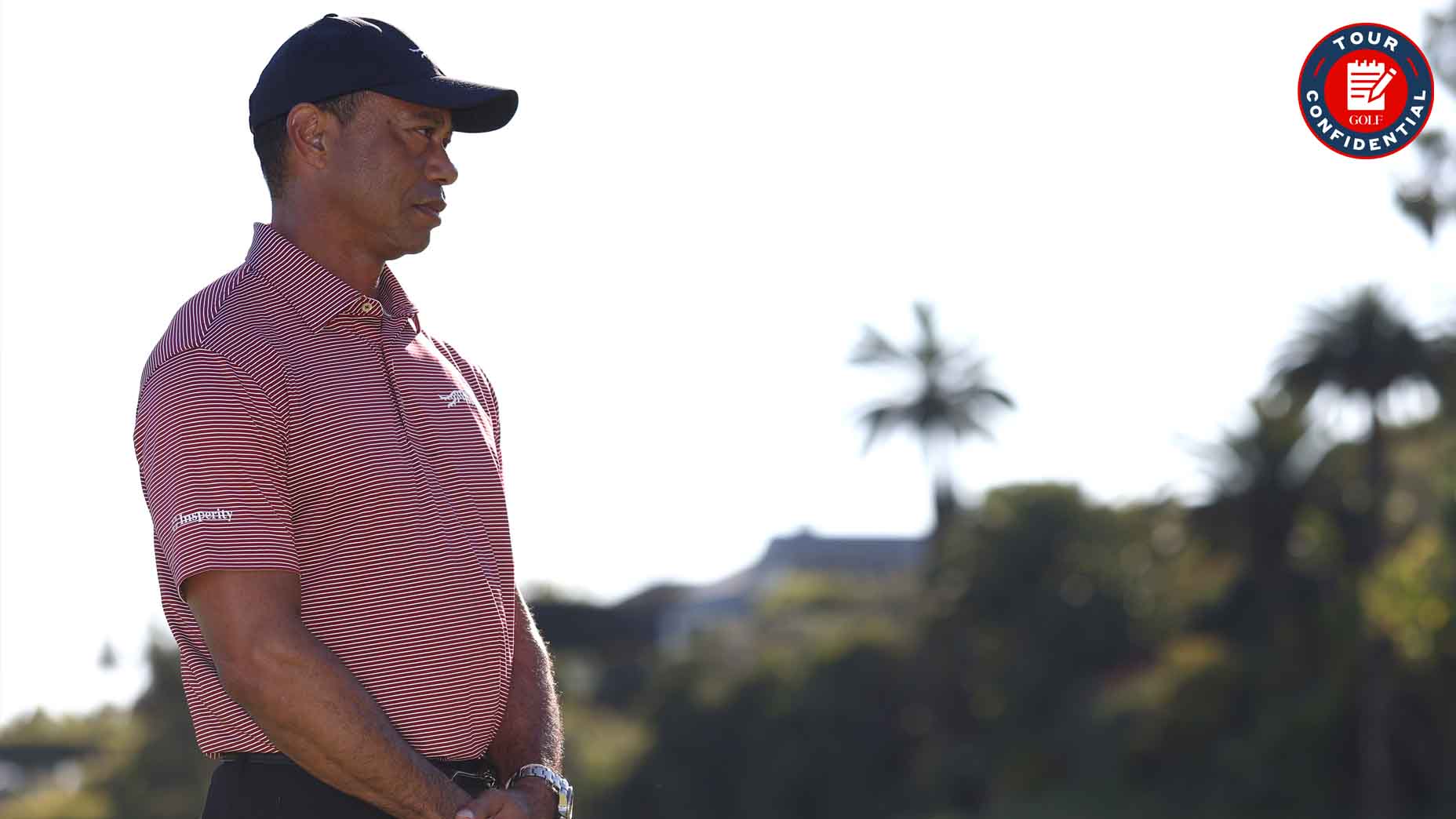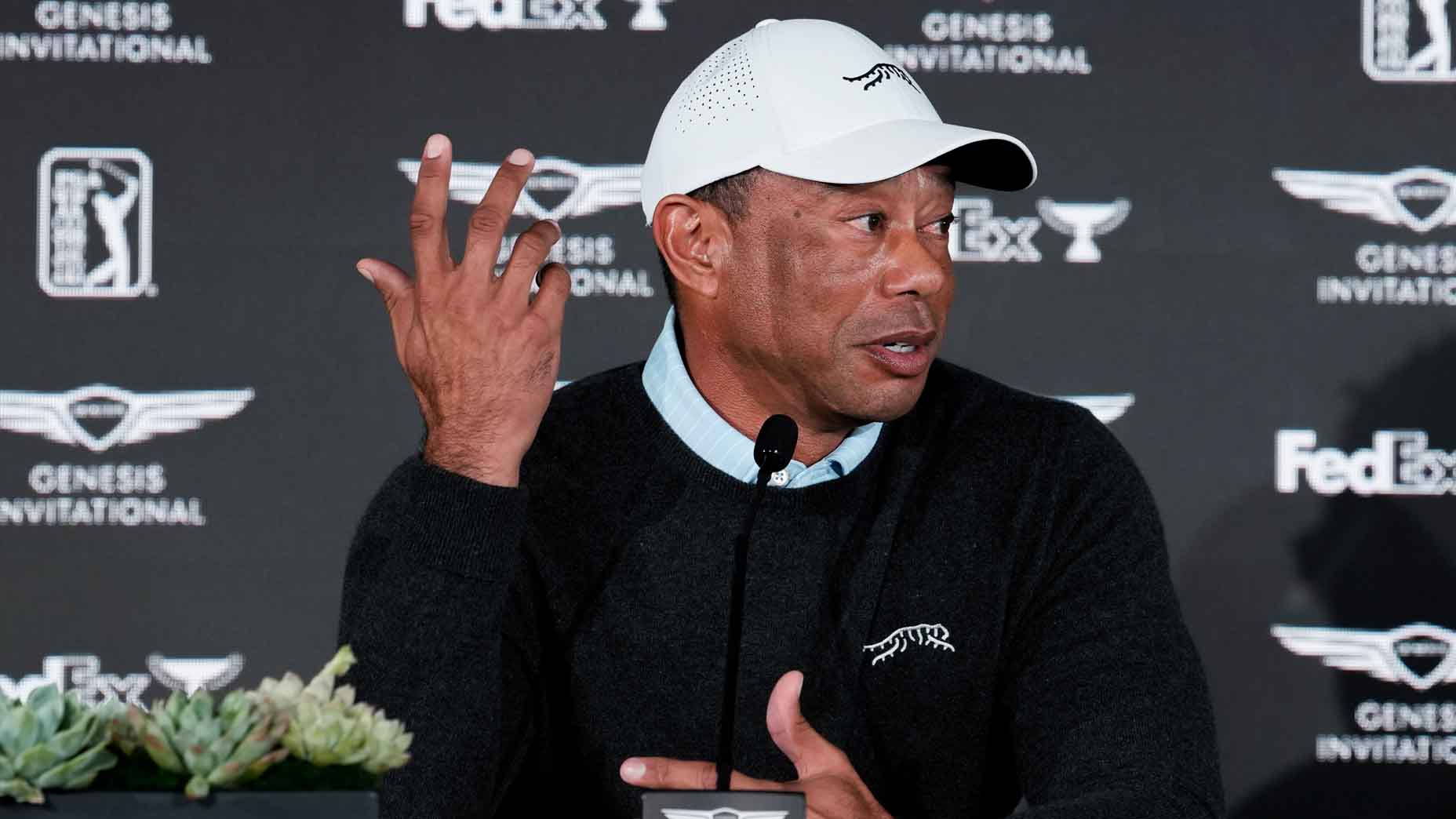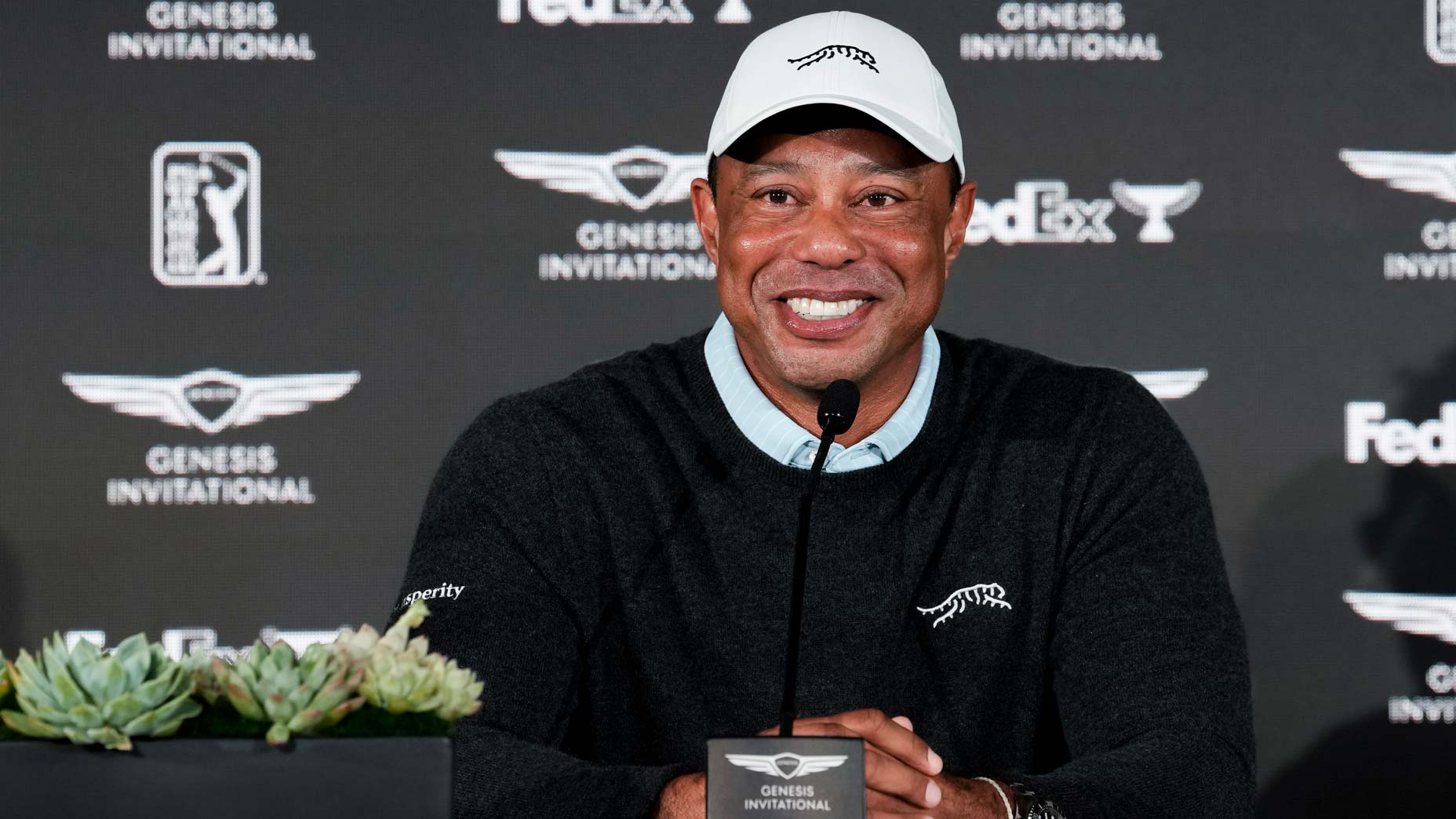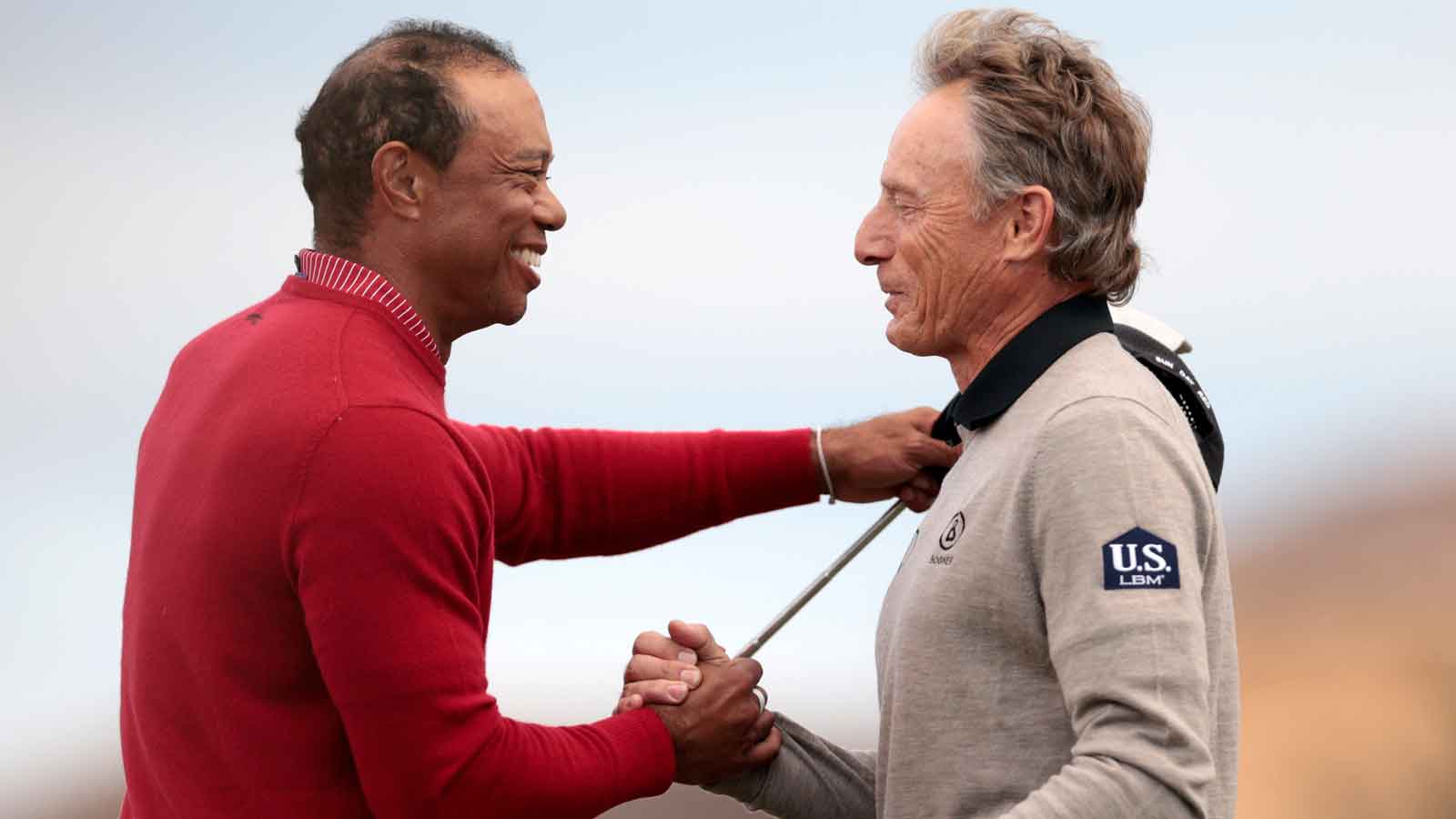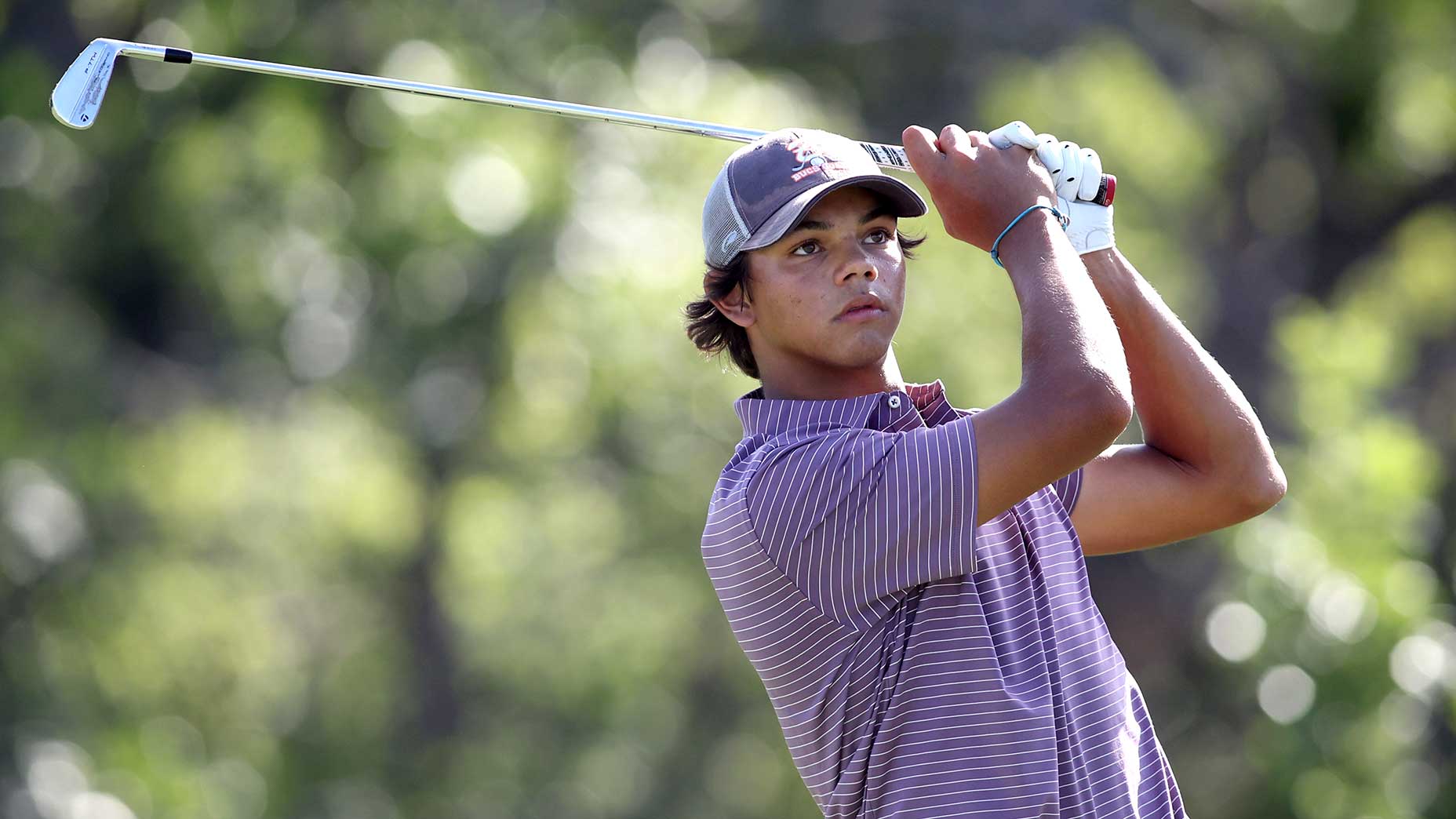The article below is a lightly-edited transcription of video commentary regarding Tiger Woods’ comments Tuesday on U.S. players being paid extra to play in the Ryder Cup. You can find the video embedded below.
Tiger Woods gave a press conference Tuesday for the first time in four months, and the talking points were predictable. His health. His schedule. Negotiations with the Saudi PIF. But one topic seemed to catch him by surprise:
Ryder Cup money.
“Tiger, what is your opinion on the possibility of American players getting paid to play in the Ryder Cup,” he was asked.
He deflects. He blames the media, which he rarely does. He rambles in an unorganized manner. And lastly, he finishes with not one but two rhetorical questions.
American players getting more money for playing the Ryder Cup isn’t that crazy. So long as they can agree on the message they’re sending. pic.twitter.com/nV9niWYbIG
— Sean Zak (@Sean_Zak) December 4, 2024
Tiger knows that the Ryder Cup already gives $200,000 to each player to distribute to a charitable organization. What he wants is a lot more. One million dollars, he said at first. Five million dollars, he said later, to multiple charities.
“I think it’s great,” Woods said.
The idea isn’t new, but it is news, by way of a Telegraph report that said U.S. Ryder Cuppers are due to earn a $400,000 stipend in 2025, and they won’t have to give it to charity. (The PGA of America declined to comment on the report.) While Woods raised some interesting points, the issue — in this era of athletes wanting more money and control — is about messaging. And what Tiger should have said is that the message from U.S. players can be different than the message being sent from European players, because they’re not playing for the exact same things.
Sixty percent of the European side of the Ryder Cup is owned by the European Tour, the same tour that turns a profit only when Europe hosts a Ryder Cup. So Rory and Rahm and Shane-O and Tommy-lad — in a big way they’re playing for the sustenance of the tour they grew up watching, and continue to play on. The Tour that cut some of their first professional checks some of these guys ever earned. That’s an easy brand not only to trust but also to play for.
Team USA is representing their country, yes, but they’re also representing the PGA of America, which uses the Ryder Cup as a massive fundraiser to grow the game through their own initiatives. Compared to the European Tour and the European team, the PGA of America simply doesn’t interface with American Ryder Cuppers nearly as much, which leads us to moments like Tiger’s rhetorical questions.
What he inferred in that press conference is, if PGA of America initiatives are what U.S. golfers are playing for in the Ryder Cup, we’d like get more transparency on where all the event’s revenue goes to grow the game, and also we’d like a little more of the money to go to charities that we really like?
This is not an unrealistic request, so long as that is the request — but it has to come with the right messaging. Right now, all we’ve got a report in a British newspaper and a “no comment” from the PGA of America. As for Team Europe, they are dialed with their communication! The day after the report, Rory McIlroy, Shane Lowry, Tommy Fleetwood, Bob MacIntyre — they all said some version of It’s not about the money. In fact I’d PAY to play in the Ryder Cup.
While that may be an unrealistic bluff that the Americans should sneakily call them on, it has given the Europeans a clear communication advantage. If they win the Ryder Cup in September — it’s we won, and we didn’t get paid. If the Europeans lose — it’s DARN, we lost, but at least we didn’t demand more money.
This messaging is sitting in Rory McIlroy’s back pocket. He can use it should he choose to. But it’s also messaging the American team can do something about, so long as they get their own house in order and publicly clarify exactly what they want from the PGA of America. Ultimately, it should probably come from someone other than Tiger Woods, though, because he won’t be playing.

